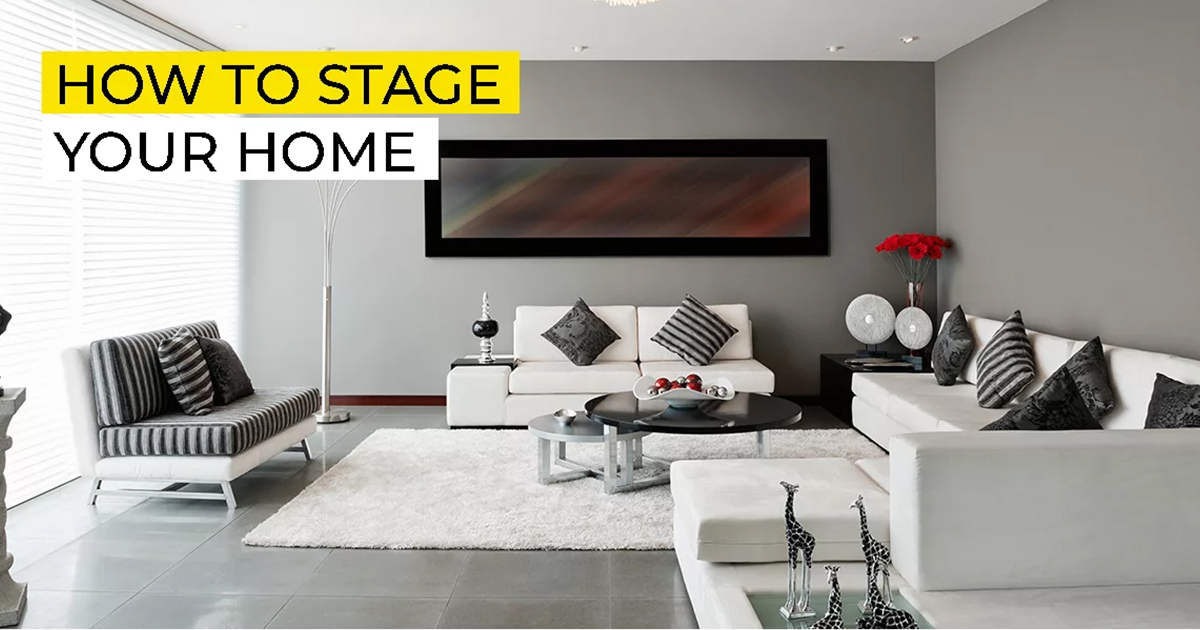How to Stage Your Home For Maximum Appeal
Selling your home is a significant undertaking, and making a lasting impression on potential buyers is essential. One effective way to capture their attention and secure a successful sale is through the art of home staging. Home staging is the process of preparing and presenting your home in a way that maximizes its appeal to a wide range of buyers. In this comprehensive guide, we will explore the ins and outs of home staging, from tips and ideas to techniques and benefits, ensuring that your property shines and attracts the right buyers.
In this comprehensive guide, we’ll delve into the world of home staging, exploring valuable tips, creative ideas, and effective techniques that will help your property shine in the competitive real estate market. Whether you’re a homeowner looking to sell or a real estate professional seeking to maximize a property’s potential, the insights provided here will empower you to create a captivating and memorable environment that appeals to a wide range of buyers. So, let’s embark on the journey of transforming your home into a buyer’s dream.
The Power of Home Staging
Before we dive into the nitty-gritty of home staging, let’s understand why it’s so crucial in today’s real estate market. Effective home staging can:
Boost Your Home’s Value: Staged homes tend to sell for higher prices than non-staged ones. When potential buyers see a well-staged home, they often perceive it as more valuable.
Attract a Larger Pool of Buyers:
Staging helps your home appeal to a broader audience. When buyers can envision themselves living in the space, they’re more likely to make an offer.
Accelerate the Sale:
Homes that are staged professionally tend to sell faster. The quicker your home sells, the less time and money you spend on the selling process.
Create Memorable Impressions:
First impressions matter, and a well-staged home leaves a lasting impact on potential buyers. It helps them remember your property amid the sea of options.
Getting Started with Home Staging
Now that we understand the significance of home staging, let’s delve into the steps and strategies for staging your home effectively.
Declutter and Depersonalize:
Begin by decluttering your home. Remove excess items, personal memorabilia, and anything that makes the space feel crowded.
Depersonalize by minimizing family photos and unique decor choices. This allows buyers to envision themselves in the space.
Clean and Repair:
A clean home is a welcoming one. Deep clean every room, including carpets, windows, and appliances.
Address any necessary repairs, such as leaky faucets, chipped paint, or loose cabinet handles.
Enhance Curb Appeal:
The exterior of your home is the first thing buyers see. Ensure it’s well-maintained by mowing the lawn, trimming bushes, and adding some colorful flowers or potted plants.
Focus on Key Rooms:
Pay extra attention to the living room, kitchen, and primary bedroom. These are often the most critical areas for buyers.
Arrange furniture to create an open and inviting layout. Use neutral colors for a fresh and timeless look.
Home Staging Tips and Ideas
Here are some practical home staging tips and creative ideas to make your home stand out:
Let in Natural Light:
Open curtains and blinds to allow natural light to flood in. Well-lit rooms feel more spacious and inviting.
Use Mirrors:
Mirrors can make rooms appear larger and reflect light. Consider placing mirrors strategically to enhance your home’s appeal.
Add Fresh Flowers:
Fresh flowers or indoor plants can add a touch of color and freshness to your home. They also bring life to space.
Set the Dining Table:
A set dining table can help buyers visualize family gatherings and dinner parties. Use elegant place settings for added appeal.
Create a Cosy Atmosphere:
In bedrooms, use soft and inviting bedding. In living areas, add throw blankets and cushions to create a cozy ambiance.
Professional Home Stagers vs. DIY Staging
While many homeowners choose to stage their homes themselves, hiring a professional home stager can be a wise investment. Here’s a comparison:
DIY Staging:
Cost-effective but time-consuming.
Requires an eye for design and attention to detail.
May involve renting or purchasing staging furniture and decor.
Professional Home Staging:
Expertise in creating a marketable look.
Access to a wide range of staging furniture and decor.
Saves you time and ensures a polished finish.
The Benefits of Home Staging:
Increased Property Value: Staged homes often sell for a higher price than non-staged homes.
Faster Sales: Staged homes tend to sell faster, reducing time on the market.
Broadened Buyer Appeal: Staging makes your home attractive to a broader range of buyers.
Positive First Impressions: Staged homes leave memorable first impressions on potential buyers.
Maximized Space:
Proper staging can make rooms appear larger and more functional.
DIY Home Staging vs. Professional Home Staging: Which Is Right for You?
Deciding whether to stage your home yourself or hire a professional depends on your budget, time constraints, and your design skills. Here are some key considerations:
Budget:
DIY staging is more budget-friendly, while professional staging can be an additional expense.
Time:
DIY staging takes time and effort, so consider whether you have the resources to do it yourself.
Design Skills:
If you lack design expertise, professional stagers can transform your home effectively.
Market Conditions:
In a competitive market, professional staging may give you an edge.
Conclusion
Home staging is a powerful tool that can help you sell your home faster and at a higher price. By following the tips and ideas mentioned here, you can enhance your home’s appeal and create a memorable impression on potential buyers. Whether you choose to stage your home yourself or hire a professional, the investment in staging can pay off significantly in the long run. So, get ready to showcase your home in its best light and attract the perfect buyer.
FAQs
Q1: What is home staging, and why is it important when selling a house?
A1: Home staging is the process of preparing and presenting a property for sale in a way that enhances its appeal to potential buyers. It’s essential because it can help your home sell faster and at a higher price by creating a welcoming and visually appealing environment.
Q2: Can I stage my home myself, or should I hire a professional home stager?
A2: You can stage your home yourself, but it requires a good eye for design and attention to detail. Hiring a professional home stager is an option if you prefer expert guidance and access to a wider range of staging resources.
Q3: What are some key areas in my home that I should focus on when staging?
A3: Focus on key areas like the living room, kitchen, and primary bedroom. These rooms are often the most critical to buyers. Ensure they are clutter-free, well-lit, and have an inviting layout.
Q4: Are there any low-cost home staging tips for sellers on a budget?
A4: Yes, you can stage your home on a budget by decluttering, depersonalizing, and rearranging furniture. Simple additions like fresh flowers, new bedding, and proper lighting can also make a big difference.
Q5: What is the difference between home staging and interior design?
A5: Home staging is specifically aimed at making a property more appealing to potential buyers. It often involves neutral colors, depersonalization, and creating a clean and inviting atmosphere. Interior design, on the other hand, is more about personal style and comfort.
Q6: Does home staging work for all types of properties, including vacant homes?
A6: Yes, home staging can benefit all types of properties, including vacant homes. In vacant properties, staging helps buyers visualize how the space can be used and adds warmth and character to otherwise empty rooms.
Q7: Are there any specific benefits to professional home staging when selling a property?
A7: Professional home staging offers expertise in creating a marketable look, access to staging resources, and a polished finish. It can lead to increased property value, faster sales, and broader buyer appeal, making it a valuable investment for sellers.









